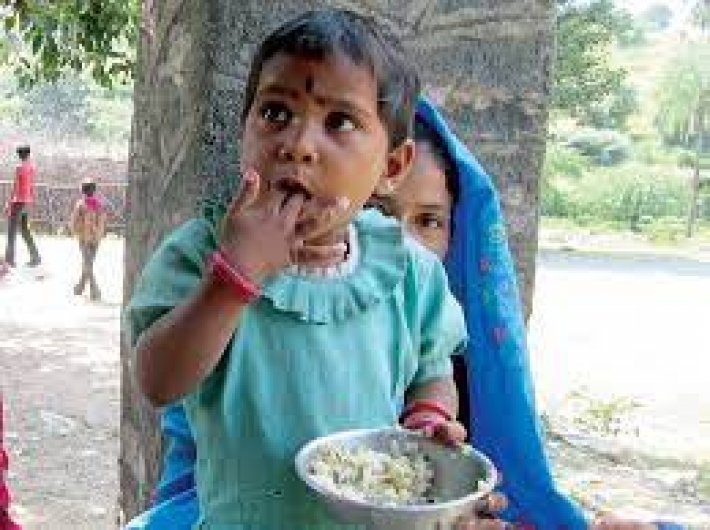Tafteesh analysis finds increased risk of indentured labour and human trafficking
Pitta Rajani, 28, and her family from Kandriga in Vijaywada faced severe difficulties during and after the lockdown last year and had to take a loan of Rs 20,000 from Soubhagya , a moneylender, at an exorbitant monthly interest of Rs 10 per Rs 100. Now Rajani is facing consistent threat from the moneylender in case she fails to pay her monthly interest; she is forced to pay double the interest as penalty – Rs 4,000 instead of Rs 2,000 a month. The moneylender is abusing and threatening Rajani that she’d go to police against her.
Faced with similar economic hardships during the lockdown, Supriya Kar (name changed), 22, from Bongon, North 24 Praganas, West Bengal, took loans totaling Rs 55,000 from various sources: Rs 18,000 from two neighbours, Rs 18,000 @1.2% interest from a self-help group (SHG), Rs 2,000 from a distant family member, Rs 11000 @1.7% interest with her jewellery as collateral from Muthot Finance and another Rs 6,000 with her jewellery as collateral from a local goldsmith.
Faced with loss of work, stigma from distant family members, neighbours and moneylenders she lost her last piece of gold. A health emergency in family led to further borrowing and at present Supriya and her family members are in acute poverty. They are depending on the rations support provided by the government which is not sufficient for the family.
Economic distress brought on by the pandemic-induced lockdown has had a long-lasting impact on people belonging to vulnerable and economically weaker sections of the society.
A study of survivors of human trafficking, commercial sexual exploitation and sex workers from West Bengal, Chhattisgarh and Andhra Pradesh conducted by Tafteesh has revealed that a significant proportion took new loans to repay the existing loans and unable to repay are now led into debt traps which has in turn increased their risk of becoming indentured labour and victims of trafficking.
Tafteesh is a coalition of survivors of human trafficking, lawyers, researchers, psychologists, social workers and human rights activists.
The study is a comparative analysis of income and loan information as of May 31, 2021 (at the end of the second, state-level lockdown) as against May 31, 2020 (nearing the end of the first, nationwide lockdown). It focused on 335 survivors of human trafficking, commercial sexual exploitation and sex workers. It was conducted by five collectives Utthan, Bandhan Mukti, Bijoyini, Vimukthi and SAANS. The first three are West Bengal-based collectives of survivors of human trafficking. SAANS is a group of survivors of labour trafficking from Chhattisgarh. Vimukthi is a collective of survivors of commercial sexual exploitation and sex workers from Andhra Pradesh.
As per the study, people belonging to this vulnerable section have been hit economically far more during the second wave, believed to have started in India around March 2021, than during the first wave when they had at least accessed free ration and cash support provided by the state and central governments.
“During the second wave the government’s focus has been mostly to strengthen the healthcare system which has not managed to provide access to PDS to this section of people. Their need for food for sustenance without much or no income pushed them to turn to high-risk loans available in their vicinity,” says the study.
As per the findings, out of 335 surveyed, 60% (201) have taken some loan during the time of this study in May 2021 to cope with their financial difficulties created by the pandemic and lockdown. Of the 201 who had taken loan, 123 (60%) have taken high-risk loans much beyond their paying capacity and family income. The average monthly minimum requirement reported by the study respondents was about Rs 6,300. The average amount of loan as of May 2021 was Rs 32,396. The maximum loan amount was Rs 5,50,000. Average per capita income of survivors and their families in 2021 was Rs 704. As many as 102 (30%) families in 2021 did not have any income and maximum income was Rs 5,000.
The study revealed that banks or microfinance institutions (MFIs) have not relaxed repayment schedules or set any moratorium period for their repayment at this time of cash scarcity among the vulnerable groups.
“A significant proportion of them took new loans to repay the existing loans, which indicates debt traps which has in turn increased their risk of becoming indentured labour and victims of trafficking,” says the study.
Another important learning from this analysis is that women are particularly at the risk since they are at the front of all their family debts and they are likely to be sued for defaulting in repayments or subjected to harassment by the moneylenders and their recovery agents.
The analysis also showed that the pandemic and accompanying restrictions have aggravated the economic condition of women in sex work who have been in already precarious situation being outside of the social protection mechanism. During this period, their debt amounts have increased exorbitantly. Out of the 142 survivors of commercial sexual exploitation and women in sex work analysed for the research, 99 have taken loans ranging between Rs 5,000 and Rs 5,50,000 during the second wave.

